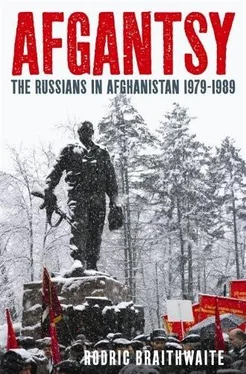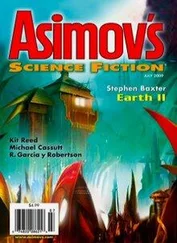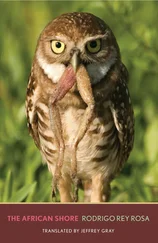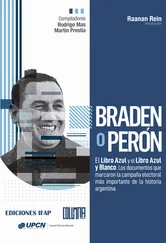But the way the documents were selected means there are large gaps that will not soon be filled. Few KGB documents have appeared, and there is much that cannot be said for certain about the KGB’s role in the Afghan Communists’ rise to power. Some crucial aspects of the political decisions taken at the beginning of the war, and at its end, are still shrouded in mystery, a mystery deepened because the witnesses are passing from the scene.
Many of these documents have emerged as a result of the tireless activities of the late General Alexander Lyakhovski, who himself served in Afghanistan from 1984 to 1989. His book Tragedia i doblest Afgana (The Tragedy and Glory of the Afghan War) contains a remarkable collection of official documents, both political and military. It also contains records of interviews with participants at all levels. It represents the view primarily of the military, and is not easy to work with: it came out in three editions in 1995, in 2004 and, after the author’s untimely death, in 2009. These are not consistent with one another, the sources are not always clear, and the indexing is inadequate. But until the official archives are open, it is likely to remain an essential basis for the study of the war.
There is as yet no literature about the war in Afghanistan to compare with that generated by the Great Patriotic War—Vasili Grossman’s Life and Fate , Vasil Bykov’s novellas or the novels of Konstantin Simonov, for example. But in recent years there has been an increasing number of novels by veterans, thinly disguised autobiographical accounts of their experience. The best of these are thoughtful, perceptive, and often critical; a far cry from the laddish and often boastful stuff produced by some of their opposite numbers in the West. Since they are Russians, many of the veterans have written poetry and songs, some of it of value, often a poetry of yearning for the exotic country where they spent a part of their youth and where they saw their comrades die.
Most useful of all, perhaps, is the Internet. Some important Russian books and memoirs are, to all intents and purposes, only available online: they are out of print in Russia and cannot be found in libraries in Britain. I have given the sites where they can be found, but the electronic copies are not always properly paginated, and those who wish to follow up some of my citations will have to do an electronic search on the text.
The Internet is also an invaluable source of relevant articles. From about 2005 onwards the veterans and others have made increasing use of the Web to express their views, amass information, and publish accounts of their experiences. Much of the writing is excellent—intelligent, perceptive, and of genuine literary quality. There is some ranting as well, but it is easy enough to distinguish. All references to articles are in the notes.
The Russians have made several objective documentary films about the war, notably Posledni Soldat (The Last Soldier, 2004). Afganski Kapkan (Afghan Trap, 2009) is about the rising in Badaber. Aleksei and Tatiana Krol are making a lengthy multipart documentary, Afganskaya Voina , which incorporates a lot of exceptionally interesting interviews and archive footage. The best of the feature films, recommended by many veterans, is Afganski Izlom (Breaking Point, 1991), set in the last period of the war. Musulmanin (The Muslim, 1995) is a fanciful but interesting film about a soldier, converted to Islam, who returns from captivity to his village deep in the Russian countryside. Devyataya Rota (Ninth Company, 2005) is spectacular, Russia’s answer to Saving Private Ryan , just as macho-sentimental, disliked by most Afgantsy. Osama (2003) is a first-class Afghan film about Taliban rule in Kabul. The American film The Beast (1988) is better than it sounds. Charlie Wilson’s War (2007) is amusing but has only an intermittent connection with historical reality.
The songs of the soldier-bards can be found on the Internet, in the form they were recorded during the war. Igor Morozov and others have made their own recordings, which are not widely distributed. The accompaniment to many of the modern recordings is not at all authentic.
I have also drawn a good deal on Wikipedia as a source of new facts and a way of checking old ones. This is frowned on in the academic world. However, the articles in Wikipedia can be subjected to the same critical tests as articles in the academic press and indeed documents in the official archives. Some are clearly authoritative, such as technical articles about the characteristics of Soviet and American weapons. Some are self-evidently biased special pleading. Most come somewhere in between. I hope I have managed to distinguish between them.
Translations are mine except where otherwise indicated.
Abdur Rahman, The Life of Abdur Rahman , Vol. 1 (London, 1900)
Ablazov, V., Afganistan chetvertaya voina (Kiev, 2002)
Afghanistan Justice Project, Casting Shadows: War Crimes and Crimes against Humanity, 1978–2001 , 2005 ( http://www.afghanistanjusticeproject.org/)
Akhmetova, T., Russki Mat: Tolkovy Slovar (Moscow, 1997)
Aleksievich, S., Zinky Boys (New York, 1992)
Alexiev, A., Inside the Soviet Army in Afghanistan (Santa Monica, CA, 1988)
Appy, C., Vietnam (London, 2006)
Armesto, M.-R., Son Mari a tué Massoud (Paris, 2002)
Arnold, A., The Fateful Pebble (Novato, CA, 1993)
Assotsiatsia Zhurnalistov, Afganskaya Voina: Kak Eto Bylo (Moscow, 1994)
Babur, translated by W. Thackson, The Baburnama (New York, 2002)
Balenko, S., SpetsNaz GRU v Afganistane (Moscow, 2010)
Ball, W., Monuments of Afghanistan (London, 2008)
Bearden, M., The Black Tulip (New York, 1998)
Bearden, M., and Risen, J., The Main Enemy (New York, 2003)
Belofastov, A., and Rebrik, A. (eds.), Mushavery (Moscow, 2005)
Blood, P. (ed.), Afghanistan: A Country Study (Washington, DC, 2001)
Bobrov, G., Soldatskaya saga (Moscow, 2007)
Bocharov, G., Russian Roulette: Afghanistan through Russian Eyes (London, 1990)
Bogdanov, V., Afganskaya Voina 1979–1989 (Moscow, 2005)
Bologov, V., Kniga Pamyati o sovetskikh voinakh, pogibshikh v Afganistane (Moscow, 1995) ( http://afgan.ru/memoryafgan/)
Boltunov, M., Alfa—Sverkhsekretny Otryad KGB (Moscow, 1992)
Borer, D., Superpowers Defeated: Vietnam and Afghanistan Compared (London, 1999)
Borovik, A., The Hidden War (New York, 1990)
Braithwaite, R., Across the Moscow River (New Haven, Conn., 2002)
Bykov, V., Ego batalion (Moscow, 2000)
Byron, R., The Road to Oxiana (London, 2007)
Caroe, O., The Pathans (New York, 1964)
Chayes, S., The Punishment of Virtue (London, 2006)
Chazov, Ye., Zdorovie i Vlast (Moscow, 1992)
Chernyaev, A., Moya Zhizn i Moe Vremya (Moscow, 1995)
— Shest Let s Gorbachëvym (Moscow, 1993)
— Sovmestny iskhod: Dnevnik dvukh epokh 1972–1991 gody (Moscow, 2008)
Chernyaev, A., Medvedev, V., and Shakhnazov, G., V Politburo TsK KPSS (Moscow, 2006)
Chikishev, S., SpetsNaz v Afganistane ( http://artofwar.ru/c/chikishew_a/text_0010.shtml)
Clammer, P., Afghanistan (Melbourne, 2007)
Coll, S., Ghost Wars (London, 2005)
Cordovez, D., and Harrison, S., Out of Afghanistan (Oxford, 1995)
Corwin, P., Doomed in Afghanistan (New Brunswick, NJ, 2003)
Читать дальше












